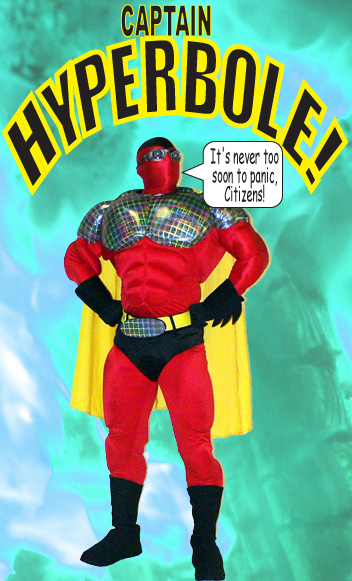A rational person might behave differently because sometimes the principle is worth more than the few pennies saved. I know when I purchase Chinese goods that I'm in truth supporting the communist Chinese government.
Same difference, you're just adding another variable into your calculation of value and puting the price tag of "the few pennies saved" on your principle of not supporting the communist Chinese government, however it's safe to say that your "principle" in this case has a price tag, for example what if the price difference was $1000, would you still pay the difference to service your "principle" ? not to mention in order to say that your "principle" has no price tag then you'd have to say that you NEVER purchase Chinese manufactured products.
I can't say that I NEVER purchase Chinese manufactured products but I will say that if I have an alternative, I'll take it. Look, I'm not judging you for shopping at Walmart. If that's where you choose to spend your dollars, have at it. For me personally, Walmart is the store of last resort. IMO Walmart is ALMOST as culpable as the U.S. tax laws in driving business out of the country.
Check out
The Man Who Said No to Wal-Mart | Fast Company
The Wal-Mart vice president responded with strategy and argument. Snapper is the sort of high-quality nameplate, like Levi Strauss, that Wal-Mart hopes can ultimately make it more Target-like. He suggested that Snapper find a lower-cost contract manufacturer. He suggested producing a separate, lesser-quality line with the Snapper nameplate just for Wal-Mart. Just like Levi did.
"My response was, we would take a look at that," says Wier. "The reason I gave that response was, it was a legitimate question. In my own mind, I knew where I'd go with that"--no thanks--"but at that kind of meeting you at least have to be willing to say, I'll investigate." And that was it. "The tone at the end was, We're not going forward as a supplier."
No lightning bolt struck. Except that Snapper instantly gave up almost 20% of its business. "But when we told the dealers that they would no longer find Snapper in Wal-Mart, they were very pleased with that decision. And I think we got most of that business back by winning the hearts of the dealers."
Snapper was successfully integrated into Simplicity, which in 2004 was itself bought by Briggs & Stratton, the company that makes many of the engines in Snapper and Simplicity mowers. Simplicity and Snapper operate as independent divisions, and Wier remained CEO of both until last summer, when he resigned to join the private equity firm Kohlberg & Co. In McDonough, business is strong. Shane Sumners plans to add a second assembly line for both walk-behind and riding mowers.
One serious hazard to Wier's strategy is that independent lawn-equipment dealers face all the same pressures that have killed, for instance, many independent hardware stores and toy stores. "That is a legitimate question and a legitimate concern," says Wier. "I think we have a part in that outcome. Can Snapper, as a major supplier, continue to supply [the independents] with great product, and a product different than you can buy at Wal-Mart?"
"I believe Wal-Mart has done a great service to the country in many ways. And it may be that along the way, they've driven some people out of business who shouldn't have been driven out of business."
Wier says, "I'm probably pro-Wal-Mart. I'm certainly not anti-Wal-Mart. I believe Wal-Mart has done a great service to the country in many ways. They offer reasonably good product at very good prices, and they've streamlined the entire distribution system. And it may be that along the way, they've driven some people out of business who shouldn't have been driven out of business." Wier wasn't going to let that happen to Snapper.
Wier had determined to lead Snapper to focus on quality, and through quality, on cachet. Not every car is a Honda Accord or a Toyota Camry; there is more than enough business to support Audi and BMW and Lexus. And so it is with lawn mowers, Wier hoped. Still, perhaps the most remarkable thing is that the Wal-Mart effect is so pervasive that it sets the metabolism even of companies that purposefully do no business with Wal-Mart.
And the power and allure of Wal-Mart is such that even Jim Wier, the man who said no to Wal-Mart, a man who knows all the reasons why that was the right decision, has slivers of doubt.





